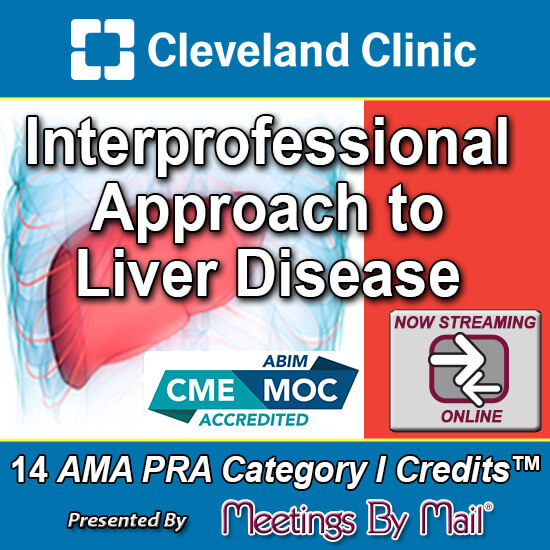Cleveland Clinic Interprofessional Approach to Liver Disease
The management of critically ill patients with liver disease requires the expertise of a variety of healthcare providers from multiple disciplines. Cleveland Clinic addresses their multifaceted educational needs with the Interprofessional Approach to Liver Disease. Physicians, nurses and physician assistants will benefit from the latest strategies and evidence based management guidance from an expert faculty. Worth 14 AMA PRA Category I Credits™, with ANCC and AAPA accreditation provided as well. This enduring material also qualifies for 14 ABIM MOC points, with NO POST TEST.
Key Features
For physicians, nurses and physician assistants managing critically ill patients with liver disease. 14 AMA PRA Category I Credits™, plus 14 ABIM MOC points.
Topics Covered
Acute liver failure, acute-on-chronic liver failure, hemodynamic challenges, pharmacotherapies, liver transplantation, complex multi-organ interventions, sepsis, ventilation, resuscitation, coagulopathy and much more!
Learning Objectives
1. Perform an accurate and timely diagnosis of acute liver failure and acute-on-chronic liver failure and design an appropriate management strategy.
2. Describe evolving practices and challenges in liver transplantation.
3. Recognize, diagnose and manage acute kidney disease in patients with liver disease.
4. Perform a pretransplant cardiac risk assessment and stratify combined organ interventions.
5. Address pre- and post-transplant hemodynamic challenges in critically ill patients with liver disease.
6. Critically appraise recent guideline revisions as they apply to pharmacologic treatments for critically ill patients with liver disease.
7. Summarize the challenges and management related to sepsis, mechanical ventilation, neuromonitoring, coagulopathy and bleeding in patients with acute liver failure.
Target Audience
All health care providers who treat patients with liver disease including intensivists, gastroenterologists, hepatologists, gastrointestinal surgeons, internists, family practitioners, nurse practitioners, transplant nephrologists, and physician assistants.

